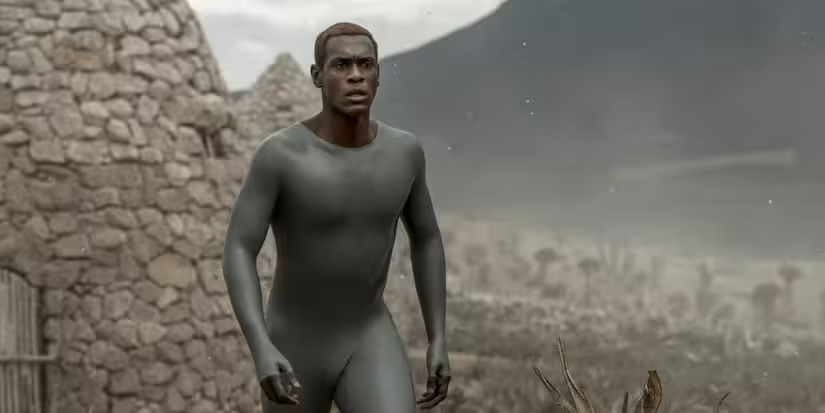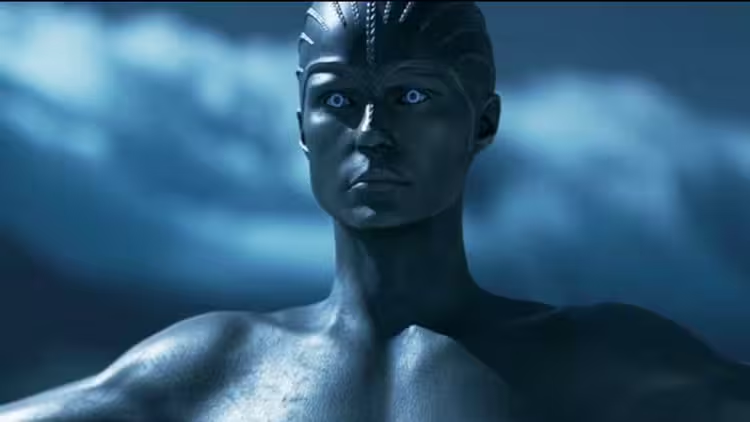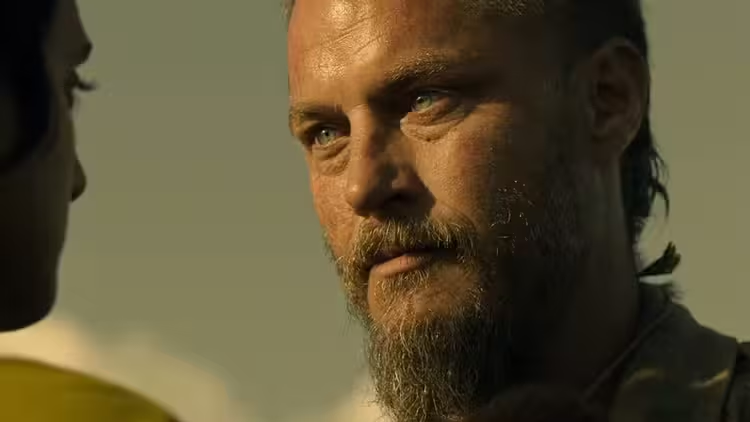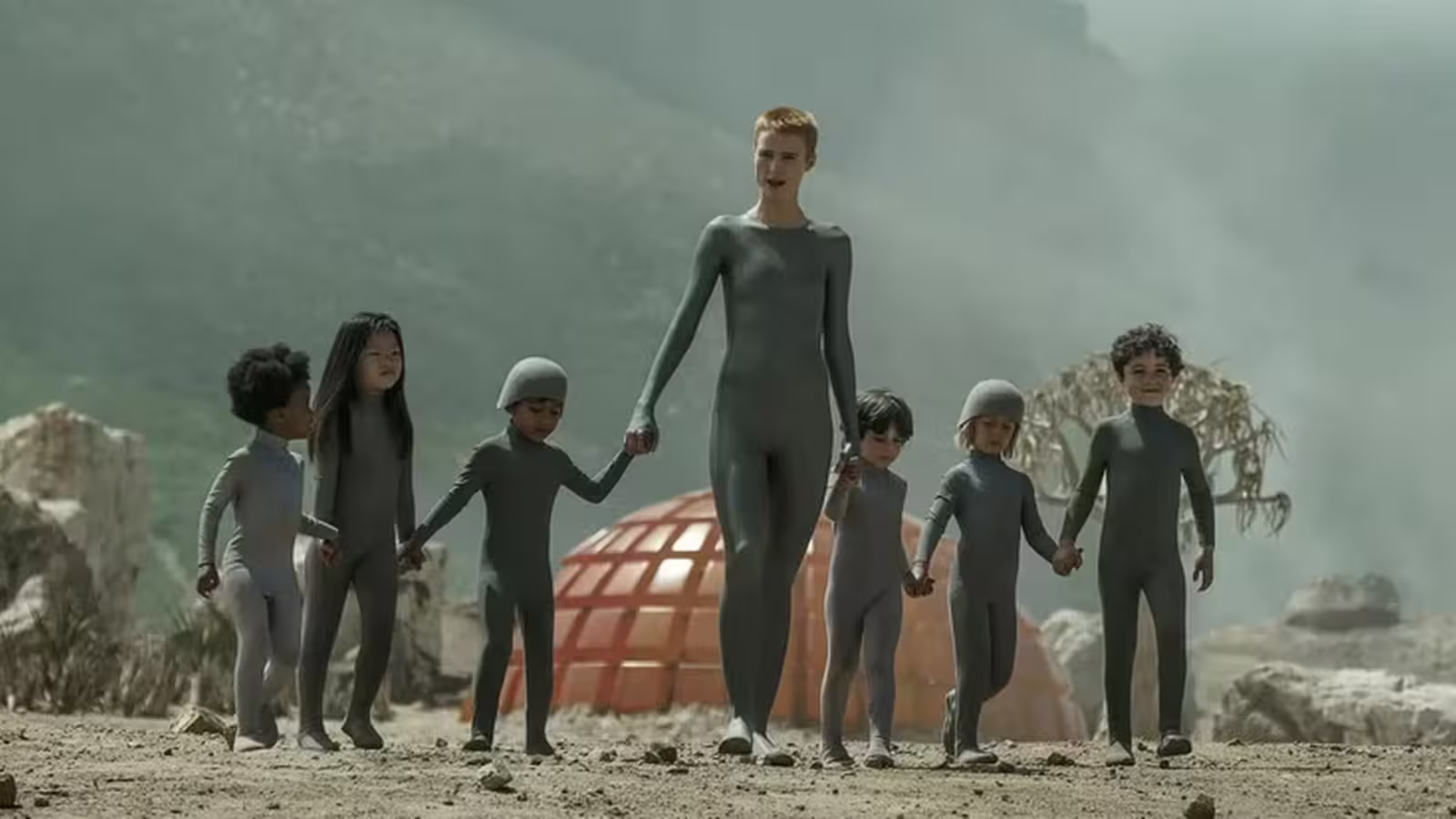6 Minutes
Introduction — A Forgotten Sci‑Fi That Still Haunts
Five years on, Ridley Scott’s involvement in a science fiction series that dared to be different still feels like a missed moment for the genre. Raised by Wolves arrived with the pedigree of Scott’s Scott Free Productions and the creative spark of showrunner Aaron Guzikowski, and it promised a bold, visually striking alternative to mainstream science fiction TV. Ambitious, haunting, and thematically rich, the series flirted with cult classic status — only to be canceled after two seasons and removed from its streaming home. For fans of Blade Runner and cerebral sci‑fi, that loss still stings.
Plot Summary
Premise
At its heart, Raised by Wolves follows two android caretakers — named Mother and Father — who are tasked with raising human children on the alien world of Kepler‑22b after Earth is obliterated. The premise is deceptively simple: a colony of humans must survive on a hostile planet while wrestling with ancient and new belief systems. Against this alien backdrop, the show examines the messy, often violent struggle to pass values and identity from one generation to the next.
Key Themes
Rather than relying on familiar sci‑fi tropes, the series leans into questions about parenthood, faith versus reason, and the evolution of culture under pressure. It deliberately borrows from religious archetypes — viewers have noted echoes of the Garden of Eden and textual nods to apocryphal works such as the Book of Enoch — while also investigating the moral costs of unrestrained technology and authority.

Cast and Crew
Raised by Wolves was created by Aaron Guzikowski and carried the creative imprimatur of Ridley Scott as executive producer and director on key episodes, which helped shape the show’s cinematic tone. The cast delivered memorable, often uncanny performances, anchored by Amanda Collin as Mother and Abubakar Salim as Father. Other notable cast members include Travis Fimmel and Niamh Algar, who brought emotional grit to the human conflicts at the center of the story. The series also showcased striking production design, a brooding score, and layered visual effects that emphasized atmosphere over spectacle.
Production and Visual Design
From the first frame, Raised by Wolves stakes its claim as artful science fiction. The production blends practical sets, meticulous art direction, and moody cinematography to evoke a sense of otherworldly dread. Filming locations, costume design, and creature work all contribute to an aesthetic that is both primitive and futuristic — a perfect fit for a show obsessed with origin myths and survival. The soundscape and score play as much of a role as the visuals, reinforcing the series’ eerie, ritualistic mood.

Critical Reception and Legacy
Critics responded positively to the series’ risks. Season 1 earned solid reviews and a Rotten Tomatoes score that reflected appreciation for its originality, and Season 2 was met with even stronger critical support. Many commentators compared Raised by Wolves to Ridley Scott’s film work — particularly Blade Runner and Prometheus — because of its philosophical bent and visual ambition. For viewers hungry for science fiction that challenges expectations, the show became one of the most talked‑about new entries into modern sci‑fi drama.
Cancellation, Streaming Fate, and Fan Response
Despite critical praise and a devoted fanbase, the show was canceled after its second season. Initially available on HBO Max, Raised by Wolves later lost its streaming home in the United States, leaving many fans asking where to watch and whether the story could ever be continued. Campaigns and petitions surfaced calling for a revival or for another platform to pick up the series, but as of now its future remains uncertain — a frustrating outcome for a program that had so clearly explored fertile thematic ground.
Why Raised by Wolves Mattered — A Personal Take
What made Raised by Wolves feel like a potential genre milestone was its willingness to be uncomfortable and mysterious. Unlike many contemporary science fiction shows that trade originality for franchise familiarity, it dared to question faith, authority, and the ethics of creation in ways that still resonate. The use of Kepler‑22b as an alien canvas — a real exoplanet discovered by NASA’s Kepler telescope — gave the series a poetic tether to actual science while its mythic layers opened the show to deep speculative reading.
In an era when streaming platforms churn out a steady diet of safe sci‑fi, Raised by Wolves stood out as an uncertain, sometimes infuriating, but always ambitious experiment: cinematic in scope, literary in reference, and visceral in emotion. It didn’t play to nostalgia; it rewired it. For movie and TV fans who care about artful science fiction, the show’s abrupt ending is less an end than an invitation — to rewatch, debate, and imagine what might have been a genre‑defining classic.

Where to Watch and What to Expect
If you’re looking to discover Raised by Wolves now, availability varies by region. The series was produced for HBO Max and distributed through Scott Free Productions, but streaming rights have shifted over time. For readers outside the U.S., check local catalogs and digital rental platforms. If a revival ever materializes, expect more dense worldbuilding, moral complexity, and the kind of cinematic scale that only a Ridley Scott–branded sci‑fi drama can promise.
Source: screenrant



Leave a Comment